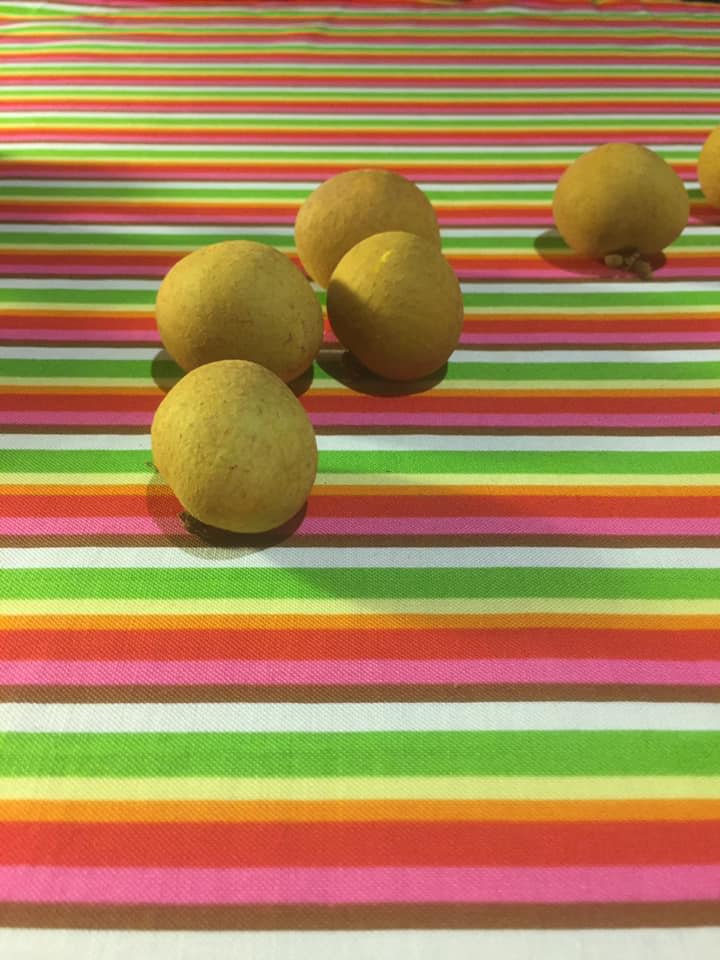Longan
Sapindaceae
Longan: three and a half stars for what is usually a four star family of fruit. If you were as botanically inept as I am, and you happened to find yourself dissecting a longan, you might excitedly think to yourself that you had found a delicious new fruit that was somehow related to the lychee. You would be half right: you have, in fact, found a new fruit that is somehow related to the delicious lychee. However, it is somewhat less sweet, less juicy, and generally less delicious than the lychee. When I open them, there is a strange smell like smoky, bitter latex. The fruit tastes pleasant enough, but the smell lingers in the back of my throat. I did discover a neat parlour trick for opening longans: rest the fruit on your curved forefinger and middle finger, then use your thumb to push down upon the fruit. Squeeze the fruit until it pops open, then eat the exposed flesh. I look forward to trying this satisfying technique with lychees.

We walked along the river, towards the city, past the old shipwright and the algae-covered wrecks, past the copse of petrified yews, and past the former hospital which had been claimed by the transients, the grounds of which were covered in sticky dew. We reached the hobo bazaar, where sellers sat in rows, their wares laid carefully on a tarp upon the ground. One of the sellers had several sets of cutlery on her tarp, and was trading items of cutlery for almonds, wooden pegs, elastic gaskets, feathers of exotic birds, remnant lengths of copper wire, longans, a soap carving of Don Quixote, pieces of scrimshandy, an icon of Saint Augustine, gewgaws, and all manner of folderol. I did not see her once refuse an offer of trade.
An old man hobbled through the aisle of sellers, calling out and striking a steel implement against a can of potted salmon or tuna. I asked the man what he wanted for the can. The man looked at me, then looked at my eldest nephew, and then looked at Blotch.
“I would very much like to ride on your donkey.”
My eldest nephew protested – Blotch was a mule, not a donkey, and mules were not to be sat upon by frail old men with aspic in their beards. I asserted that my eldest nephew had reason in this matter, but I nonetheless asked the old man whither he wished to ride.
“I must catch a ship from the –––– of –––– on the river ––––, but I am quite old and frail, and whenever I leave this place, the rats smell the aspic in my beard and attack me.”
I told the old man that we also wished to find a ship to take us to the mainland, and that if he were careful not to disturb the pickled plums, he could sit in the barrel that was on the produce cart. This arrangement would allow him to indirectly ride Blotch. The old man seemed rather pleased with this prospect, and promptly disrobed and entered the barrel.